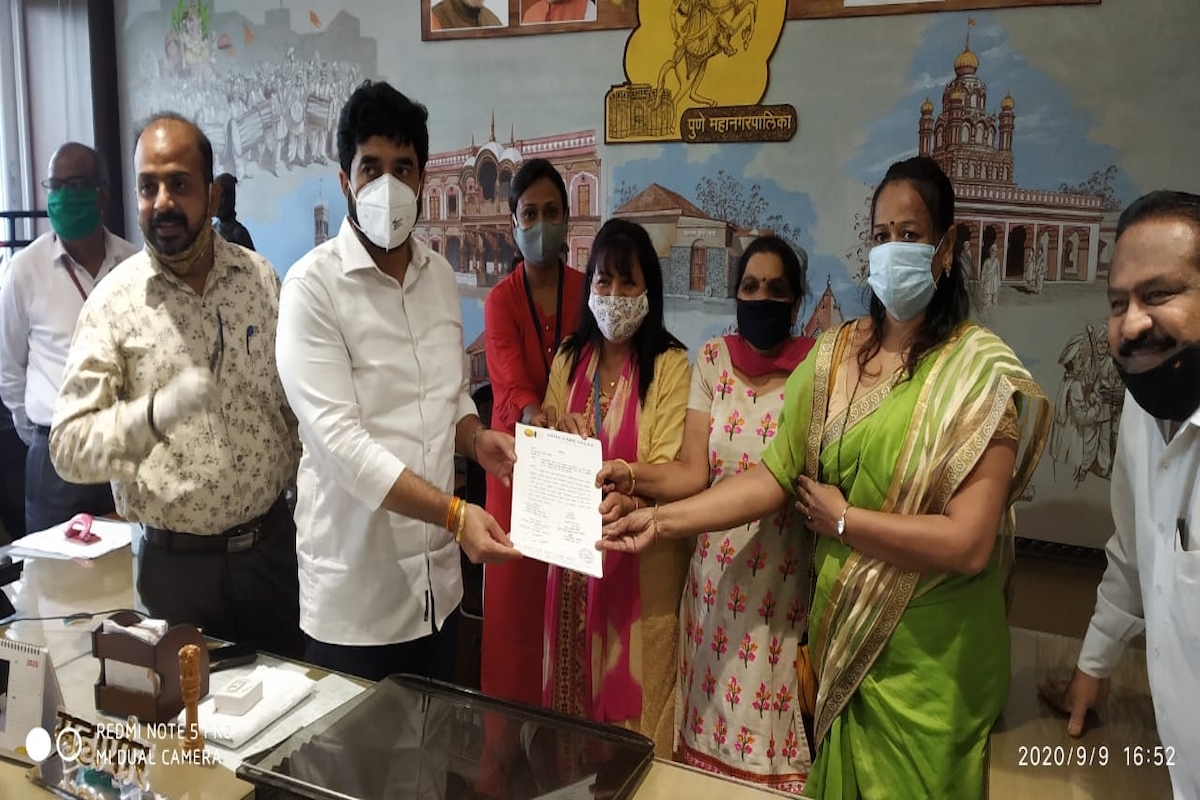Trump announces US withdrawal from World Health Organisation
Trump has long been critical of the WHO, and his administration formally withdrew from the organisation in July 2020 as the Covid-19 pandemic continued to spread.
With the pandemic wiping off their business, the growing burden of the loans, and other responsibilities, the sex workers are now keen to change their professions, she added.

With Pune now the Covid-19 hub in the Indian subcontinent with the maximum number of infections, practitioners of the world’s oldest but most condemned profession now desire a change in their lives.
With a series of lockdowns over the past six months and more, the demand for the sex trade has drastically abated, leaving commercial sex workers (CSWs) on the verge of starvation, said a new study by city-based NGO, Asha Care Trust (ACT).
Advertisement
A sample survey conducted by ACT in Budhwar Peth – the country’s third-biggest red-light area which houses around 700 brothels with over 3,000 sex workers – threw up startling revelations that made activists and leaders take serious note of their plight.
Advertisement
“Our survey reveals that over 85 percent of the sex workers have taken loans for various purposes… Of these, nearly 98 percent have taken it through their brothel owners, agents or moneylenders, subjecting them for further exploitation,” ACT President Sheela Shetty told IANS.
With the pandemic wiping off their business, the growing burden of the loans, and other responsibilities, the sex workers are now keen to change their professions, she added.
“Of the 300 respondents, 87 percent confessed that even before the pandemic, they did not earn enough to support themselves or their dependents or families,” Shetty said.
However, the chief problems continue to be illiteracy, no skills, or other resources which leads to entrapment and enslavement to the very same flesh trade that is their only means of survival.
But, the pandemic has offered a ray of hope as a majority of them – as high as 98 percent – want to quit the profession and switch over to alternative jobs, if given any opportunity, said Shetty.
Experts say the situation is similar in the country’s biggest red-light area of Sonagachi, Kolkata with around 12,000 CSWs and the second-biggest at GB Road, Delhi with over 6,000 CSWs.
The survey also found that a majority – 82 percent – of the women in Budhwar Peth are aged between 25-45, and while some were forced into prostitution as minors, few joined out of choice.
Though nearly 93 percent also said they dread returning to the flesh trade after the lockdown, they are also mortified by the prospects of starvation, harassment from brothel operators, and other elements linked to the profession.
Seemingly resigned to their fate, over 65 percent even believe that with the successive ‘Unlockdown’ phases, the sex trade might revive, though the majority opinion is to pack up and go away if they get alternative means of livelihood.
A delegation of ACT, with several prominent social workers like Shailesh Badhai, Yogesh Bhokre, Bhola Vanjale, Vidya Pedankar, Pratibha Shinde, Fayyaz Sheikh, and others met Pune Mayor Murlidhar Mohol and submitted the report to him.
“We have appealed to the Mayor to explore strategies and bring these women out of the sex trade, set up a trafficking victim relief or welfare fund which can help them repay their debts and rehabilitate them afresh with dignity in society,” said Shetty.
Sex worker Nila (name changed on request), who accompanied them, said: “We are facing great hardships. Each day is a challenge for survival with no income or savings. All we want is support to take up some other profession and lead a respectable life. Please help us.”
The group plans to meet other district and state-level officials including ministers to take the initiative forward.
Advertisement